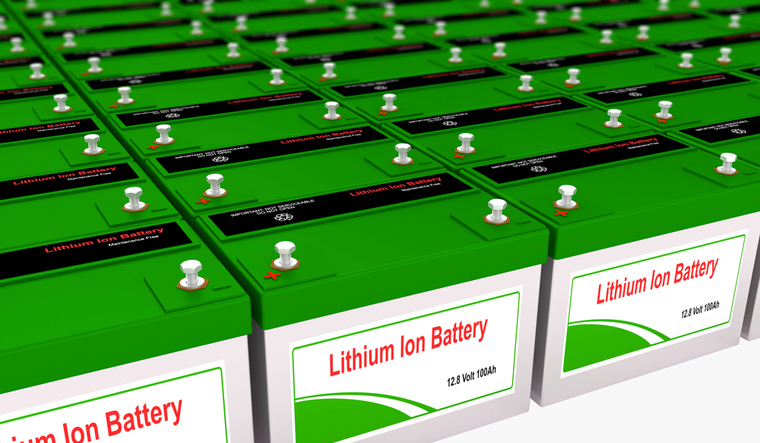In what comes as a pleasant surprise, and a potential boon for India’s electric vehicle industry, researchers from the Atomic Minerals Directorate have stumbled upon a patch of land in Mandya, 100 kms from Bengaluru, containing over 30,300 tonnes of Lithium Oxide reserves. This would translate into over 14,100 tonnes of raw Lithium which could be procured from the site. The Atomic Minerals Directorate is a unit of India’s Atomic Energy Commission.
“The present data provides a total estimation of available Li2O as about 30,300 tonnes over an area of 0.5 km x 5 km, which works out to about 14,100 tonnes of lithium metal,” N Munichandraiah, Emeritus Professor at the Indian Institute of Science and an expert on battery technologies, told The Economic Times.
The discovery of a Lithium reserve in India is a ray of hope for the EV industry of the country, which up till now was, and continues to be fully dependent on imports of Lithium to fulfil its needs. India has no known reserves of the light metal, except for the one now found in Mandya. However, N Munichandraiah also said that the reserves found in Mandya are no match to the mighty Lithium reserves of Chile, Australia, China and other countries. “If one compares with 8.6 million tonnes in Chile, 2.8 million tonnes in Australia, 1.7 million tonnes in Argentina or 60,000 tonnes in Portugal, 14,100 tonnes is not that large,” he added.
Nevertheless, there is much to celebrate with this discovery. The fact that the myth of a ‘no-Lithium India’ has been busted will now propel researchers, and the government to begin the search of other Lithium reserves in the country. If and when found, such local reserves of the metal will immensely help cut imports of the metal and boost the Lithium-ion manufacturing in India. India currently imports all its lithium needs. It imported lithium batteries worth $1.2 billion in fiscal 2019, up from $384 million in FY17.
TFI had in October last year reported on how the Modi government was working on an innovative way to work around the local non-availability of Lithium reserves, by introducing a Lithium-ion battery recycling project. The Government of India has been working on a policy for recycling used lithium-ion batteries by offering tax sops to recycling entities while making it compulsory for producers to collect the batteries that achieve end-of-life under the Extended Producer Responsibility norms. This will ensure that India does not become a magnanimous importer of Lithium, a metal whose value could skyrocket as and when the EV-revolution hits the global automobile industry.
Also, in 2018, India and Bolivia signed a Memorandum of Understanding (MoU) for the development and industrial use of lithium for the production of lithium-ion batteries. As part of the MoU, Bolivia would support supplies of lithium and lithium carbonate to India, as well as joint ventures between the two countries for Li-ion battery production plants in India. Many companies like Exide, BHEL, Suzuki Motor Corporation in collaboration with Datsun and Denso are all set to set up mega factories for the production of Lithium-ion batteries. It is therefore evident that India is not a mute spectator to the imminent electric vehicle craze that is about to hit the markets.
India appears to have a plan that involves laying the groundwork for manufacturing Li-ion batteries and recycling used ones so that India’s aspiration to go electric remains economically sustainable.
